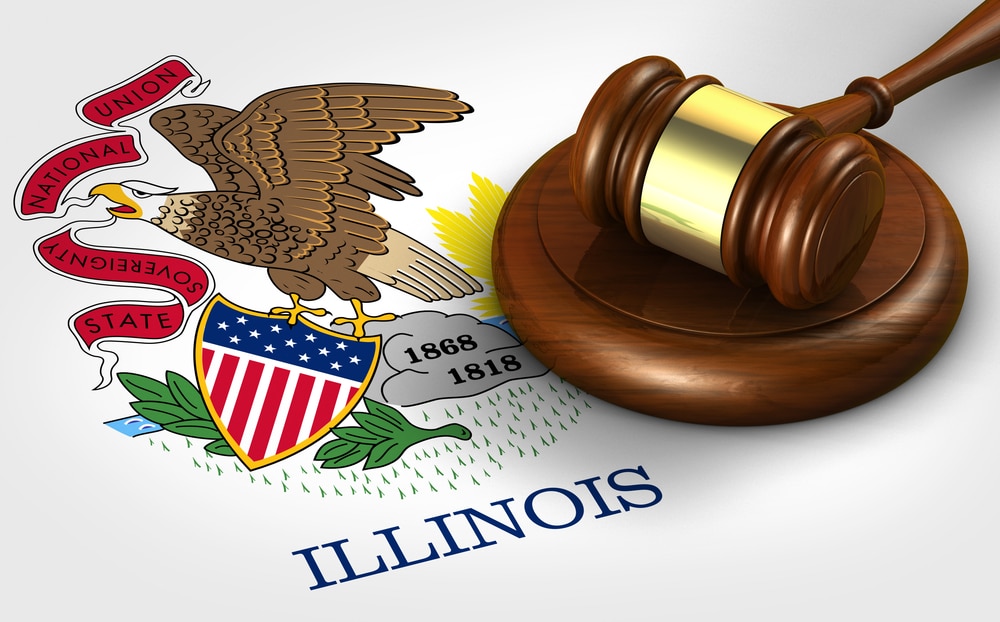Illinois Bankruptcy Guide

Introduction
Understanding bankruptcy in Illinois requires knowledge of both federal bankruptcy laws and state-specific provisions that reflect Illinois’s diverse economic landscape. From Chicago’s urban center to rural agricultural communities, Illinois’s bankruptcy system has evolved to address various financial challenges faced by its residents.
Illinois operates three federal bankruptcy court districts, each serving distinct regions with procedures tailored to local needs. These courts have developed specialized approaches that consider both urban and rural interests while maintaining accessibility for all residents.
The state’s exemption system provides moderate protections for residents’ assets, balancing debtor protection with creditor interests. While not as generous as some states, Illinois offers a unique wildcard exemption that provides additional flexibility in protecting assets.
Understanding Illinois’s specific bankruptcy provisions becomes crucial whether facing financial difficulties in Chicago’s financial district or managing a family farm downstate. This guide provides clear information about bankruptcy options and requirements specific to Illinois.
This guide offers general information about bankruptcy in Illinois but should not be considered legal advice. Always consult with a qualified bankruptcy attorney for guidance specific to your situation.

State Bankruptcy Courts
Northern District of Illinois
The Northern District of Illinois Bankruptcy Court operates from its headquarters in Chicago, with an additional location in Rockford. This district handles the highest volume of cases in the state, primarily serving the Chicago metropolitan area.
The court’s website (www.ilnb.uscourts.gov) provides comprehensive resources for attorneys and pro se filers, including local forms, filing instructions, and current fee schedules. Electronic filing is mandatory for attorneys, though paper filing remains available for pro se filers.
Special procedures exist for cases involving urban issues such as public transportation access and high housing costs.
Central District of Illinois
The Central District, headquartered in Springfield, maintains additional locations in Peoria, Urbana, and Rock Island. This arrangement provides convenient access for residents across central Illinois.
The court (www.ilcb.uscourts.gov) balances urban and rural needs, with procedures accommodating both city dwellers and agricultural operations.
The Central District particularly considers seasonal agricultural timing and rural transportation challenges in its scheduling and procedures.
Southern District of Illinois
The Southern District operates from East St. Louis with an additional location in Benton (www.ilsb.uscourts.gov). This district serves primarily rural and small urban communities.
The court has developed procedures that particularly accommodate agricultural operations and rural residents while maintaining accessibility for all filers.
Illinois Property Exemptions
Homestead Exemption
Illinois provides a homestead exemption of $15,000 per individual, which doubles to $30,000 for married couples filing jointly. This protection applies to primary residences, including mobile homes.
The exemption also protects sale proceeds for one year after selling an exempt property, providing time to secure new housing. This protection proves particularly valuable in Illinois’s varied real estate market.
Understanding these limits helps residents make informed decisions about protecting their homes through bankruptcy.
Personal Property Exemptions
Illinois protects various personal items, including up to $2,400 in vehicle equity and $4,000 in household goods. The state provides unlimited exemptions for clothing, books, family photos, and wedding rings.
Additional protection extends to professional books and up to $1,500 in non-wedding ring jewelry. These exemptions reflect Illinois’s effort to protect essential personal property while maintaining reasonable limits.
Wage Exemptions
Illinois protects the greater of 85% of gross earnings or 45 times the federal minimum wage. This protection exceeds federal standards, providing additional security for Illinois residents.
Enhanced protections exist for heads of households and child support payments. These provisions help ensure family stability during bankruptcy proceedings.
Tools of Trade
Illinois offers up to $1,500 in protection for tools, books, and work implements. This exemption, while modest, provides essential protection for work-related property.
Professional licenses receive protection, ensuring individuals can maintain their ability to earn a living. Additional considerations exist for farm equipment.
Wildcard Exemption
Illinois’s unique $4,000 wildcard exemption provides valuable flexibility in protecting assets. This exemption can be applied to any property and combined with other specific exemptions.
Many filers use the wildcard exemption to protect additional vehicle equity or other property not fully covered by specific exemptions.
Special Illinois Considerations
State-Specific Requirements
Illinois mandates credit counseling completion and residency requirements. The state considers both urban and rural distinctions in bankruptcy proceedings.
Residency requirements affect exemption use – debtors must live in Illinois for two years to use state exemptions, though only 91 days are required to file in Illinois courts.
Median Income Thresholds
Current Illinois median income thresholds:
- Single person: $63,575
- Family of 2: $79,846
- Family of 3: $93,674
- Family of 4: $108,486
- Add $9,900 for each additional member
Regional variations are considered when applying these thresholds.
Legal Aid Organizations
Illinois offers extensive legal aid resources:
- Land of Lincoln Legal Assistance
- Legal Aid Chicago
- Prairie State Legal Services
- Illinois Legal Aid Online
- County-specific programs
These organizations provide crucial assistance throughout the state.
Attorney Requirements
Illinois bankruptcy attorneys must:
- Be admitted to practice in Illinois
- Gain federal court admission
- Complete electronic filing certification
- Understand local rules and procedures
Filing Fees (2024)
Current filing fees:
- Chapter 7: $338
- Chapter 13: $313
Fee waivers and installment payments available for qualifying individuals.
Special Circumstances
Agricultural Considerations
Farm-related provisions include:
- Chapter 12 availability
- Seasonal income protection
- Equipment exemptions
- Crop considerations
Urban Issues
Urban considerations include:
- Public transportation access
- Higher housing costs
- Employment opportunities
- Property value variations
Weather Impact
Weather-related provisions address:
- Winter weather challenges
- Natural disaster response
- Emergency filing procedures
- Court closure policies
Post-Bankruptcy Considerations
Property Tax Issues
Property considerations include:
- Continued homestead protection
- Property tax obligations
- Senior citizen exemptions
- Tax sale implications
Vehicle Requirements
Vehicle-related obligations include:
- Insurance maintenance
- City sticker compliance
- Emissions testing requirements
- Registration renewal procedures
Employment Impact
Employment considerations encompass:
- Government employment eligibility
- Financial industry restrictions
- Professional license maintenance
- Security clearance implications
Conclusion
Successfully navigating bankruptcy in Illinois requires understanding both federal bankruptcy law and state-specific provisions. The state’s diverse landscape, from Chicago’s urban center to rural agricultural communities, has shaped distinct protections and procedures.
Illinois’s balanced exemption system, including its unique wildcard provision, provides meaningful protection for residents while maintaining fairness for creditors. The state’s three-district court system ensures accessible bankruptcy services while accommodating regional differences.
Working with qualified legal professionals familiar with Illinois bankruptcy law remains crucial for successful outcomes. The state’s exemption system and local requirements demand careful attention to detail.
Local resources, including extensive legal aid organizations and approved credit counseling agencies, provide valuable assistance throughout the bankruptcy process. These resources help ensure access to bankruptcy protection for all eligible Illinois residents.
Remember that while bankruptcy represents a serious financial decision, it also offers an opportunity for a fresh start. Understanding Illinois’s specific requirements and protections helps maximize the benefits of bankruptcy while minimizing potential complications.
